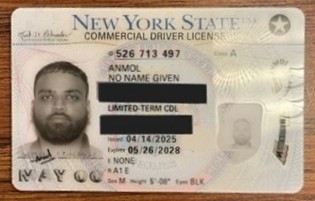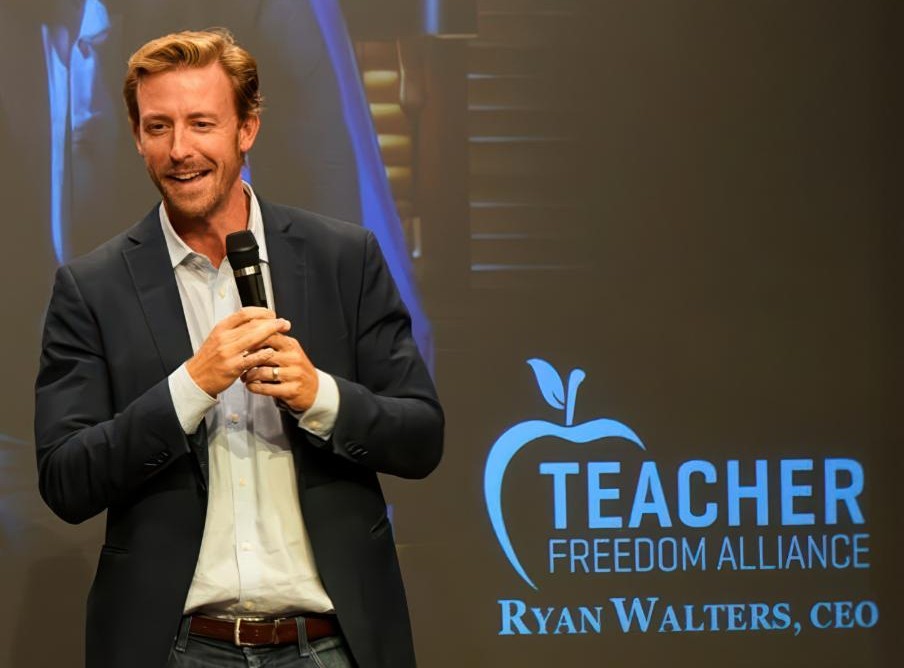Signature Gathering on Medicaid Initiative Petition Begins
The Obamacare Medicaid proposal, either by legislative action, or by a state question, would be a massive expansion of welfare that could add an estimated 628,000 able-bodied adults to Oklahoma’s welfare rolls. While much of the initial cost of the expansion would be paid from federal funds, it would put Oklahoma on the hook for a state share that could run into hundreds of millions of dollars each year. The federal government would pay 90% of the costs of the expansion in Oklahoma with an estimated $900 million per year, but Oklahoma would have to cover the remaining 10% and would eventually be required to cover a larger share of the program. Oklahoma is one of 14 states that have not signed up for the Obamacare Medicaid expansion.
If approved by voters, the proposal would make the Medicaid expansion a part of the Oklahoma Constitution, which could only be changed by another State Question. The ballot language of the measure says:
“This measure adds a new Article to the Oklahoma Constitution. The new Article would expand Oklahoma’s Medicaid program to include certain low-income adults between the ages of 18 and 65 whose income does not exceed 133 percent of the federal poverty level, as permitted under the federal Medicaid laws.”
The proposal would expand Medicaid eligibility to the entire Obamacare expansion population of able-bodied adults, would access Obamacare expansion funding, and would be subject to all Obamacare regulations. The petition was filed on April 19, but was delayed after a challenge by opponents. But, on June 18, the Oklahoma Supreme Court rejected the challenge, clearing the way for the collection of signatures.
Jonathan Small, president of the Oklahoma Council for Public Affairs (OCPA), issued a statement following the filing of the ballot initiative:
“Make no mistake, expanding Obamacare in Oklahoma will result in the state seeing the same problems as every other state that has gone down this path. Enrollment levels will be far higher than what expansion supporters predict, at significantly higher costs, to achieve significantly lower outcomes than promised. If you doubt it, just look at states comparable to Oklahoma that expanded Medicaid. Cost overruns in Arkansas have topped $1.4 billion, and Kentucky’s ranking on health outcomes remains low, despite Kentucky spending far more taxpayer money on Medicaid.”
Small warned that the initiative could result in tax increases to cover the cost overruns:
“States across the country that have expanded Medicaid have had to resort to tax increases, and the same fate awaits Oklahomans should Medicaid expand. And the growing costs of Medicaid will endanger funding for other government services like education and public safety.”
The 1889 Institute, another Oklahoma policy think tank, has published “Medicaid Expansion in Colorado: An Exercise in Futility.” The paper primarily interprets, in plain language, the conclusions of a study conducted by the Colorado Healthcare Affordability and Sustainability Enterprise Board. Further context regarding the healthcare sector in the nation is provided. In short, the Colorado study showed that hospitals in Colorado became less efficient and raised their prices after Medicaid was expanded.
“This is exactly the opposite result of what we are told will happen if we expand Medicaid under Obamacare,” said Byron Schlomach, author of the report and Director of the 1889 Institute. “The Colorado study and another study out of Arizona make it clear that Medicaid expansion is mainly about enriching its principle advocates, the healthcare industry,” he said.
The study points out that healthcare spending from all sources takes up almost one-fifth of the U.S. economy, that 13 of the 15 highest-paying professions are in healthcare, and that with 90 percent of healthcare being paid for by someone other than patients, there is no true market in healthcare. Schlomach attributes the problems with high prices in healthcare to the lack of market forces brought on by federal policy.
Schlomach said that it does not bother him that people in healthcare professions make a lot of money. “What bothers me is when they claim they are in dire financial straits without more taxpayer funding when, in fact, health care is financially better off than anyone else,” he said. “These studies from Colorado and Arizona show the extent to which the health industry constantly raises prices, not out of necessity, but simply because they can get away with it due to their subterfuge and government policies,” said Schlomach. The publication, “Medicaid Expansion in Colorado: An Exercise in Futility” and other reports on Medicaid health care can be found on the nonprofit’s website at: https://1889institute.org/healthcare.
Gov. Kevin Stitt and Republican legislative leaders oppose the straight Medicaid expansion, as called for in the initiative petition, and pledged to develop an alternative healthcare plan which includes conditions such as work requirements or requiring Medicaid participants to pay a portion of their premiums. But, even if a legislation is approved by the Legislature and Gov. Stitt, there is no guarantee that the State Question would be withheld from the ballot.
On July 29, House Speaker Charles McCall and Senate President Pro Tempore Greg Treat announced the formation of a bi-partisan healthcare working group to develop an Oklahoma solution for increasing access to healthcare and providing insurance coverage for more citizens.
The Healthcare Working Group will be similar to the medical marijuana working group that met for 13 weeks last summer to develop a way to implement the provisions of State Question 788 into law. Speaker McCall believes the working group model is the best way to bring stakeholders and interested citizens together to craft a solution that works for all Oklahomans.
“The State Question 788 working group was successful because it brought everyone together and let everyone have a voice,” said McCall. “We also had the advantage of knowing what worked well in other states and what had not, which helped us craft a final product in a way that tried to meet the unique needs of not only the supporters but also those who had concerns with the state question. Healthcare is a very complex issue, and there is no cookie-cutter approach that is going to drive down costs, improve care and increase access. It is going to take a comprehensive, multifaceted approach that considers not just what is wrong with the system but also what is working, and also what has worked and not worked in other states. That means we need to bring everyone together – patients, providers, policy experts, insurance carriers, facilities and state agencies – and find a way forward. That discussion must include everything, not just Medicaid expansion, and it will need to continue until we have a solution that works for our citizens unique needs.”
“Health care is an important topic nationally and locally,” said President Pro Tempore Treat. “We can and must do better as a state to improve our health care outcomes. Like we did previously with the House and Senate committee on medical marijuana, I’m confident this group will take a serious look at the issue and give useful recommendations for the Legislature to consider as we work to improve Oklahomans’ access to quality, affordable health care.”
Speaker McCall and President Pro Tempore Treat said Gov. Kevin Stitt’s appointees will be valuable additions to the working group. “I appreciate the strong relationship between the Legislature and the executive branch to achieve a healthcare plan that strengthens the delivery of state services and improves health outcomes in our state,” said Gov. Stitt. “This partnership in the Capitol is vital to ensure we are taking into consideration all 4 million Oklahomans as we work to deliver a Top Ten state.”
The appointed members of the working group are as follows:
State Rep. Marcus McEntire, R-Duncan, co-chair
State Sen. Greg McCortney, R-Ada, co-chair
State Rep. Harold Wright, R-Weatherford
State Rep. Marilyn Stark, R-Bethany
State Rep. Cynthia Roe, R-Lindsay
State Rep. Mark Lawson, R-Sapulpa
State Rep. Carl Newton, R-Cherokee
State Rep. T.J. Marti, R-Broken Arrow
State Rep. Trish Ranson, D-Stillwater
State Rep. Andy Fugate, D-Del City
State Sen. Kim David, R-Porter
State Sen. Jason Smalley, R-Stroud
State Sen. Gary Stanislawski, R-Tulsa
State Sen. Marty Quinn, R-Claremore
State Sen. Bill Coleman, R-Ponca City
State Sen. John Haste, R-Broken Arrow
State Sen. George Young, D-Oklahoma City
State Sen. Carri Hicks, D-Oklahoma City
Carter Kimble, Oklahoma Deputy Secretary of Health
Samantha Davidson, Policy Director, Office of the Governor
The Healthcare Working Group is expected to begin meeting on a weekly basis in August.











Latest Commentary
Thursday 30th of October 2025
Thursday 30th of October 2025
Thursday 30th of October 2025
Thursday 30th of October 2025
Thursday 30th of October 2025
Thursday 30th of October 2025
Thursday 30th of October 2025
Thursday 30th of October 2025
Thursday 30th of October 2025